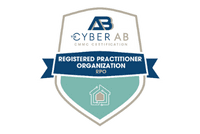
Managing the complexity of networks and servers, compliance standards, cybersecurity, application updates, software licenses and patches, hardware replacements, and more – all while trying to keep up-to-date with new technology and provide 24/7 support – is a lot to expect from one employee.
Let’s face it, your I.T. department is an essential and necessary part of your business, but even your most competent staff can’t do it all or know it all. That’s where co-managed I.T. comes into play.
Co-managed I.T. is a strategic model that blends the convenience of an internal I.T. team with the outside support of a managed service provider (MSP). It allows businesses to customize which I.T. services they provide in-house and determine where they can use an “extra pair of hands”. For example, your existing I.T. team might manage software updates, installations, and cabling, but your external partner provides help-desk support and cybersecurity training.
For companies with limited internal resources, co-managed I.T. offers business agility and has significant cost and operational benefits. Here are the top five.
TOP 5 BENEFITS OF CO-MANAGED I.T.
- I.T. Expertise On-Demand – If you run into issues your employees have less experience resolving, your co-managed support team can provide their expertise. Opting to offboard some of the problems they don’t know how to fix internally is a great way to leverage MSPs’ expert resources. Not only is their focus on I.T. best practices, but they’ve seen a wide variety of issues, so they know how to handle and resolve pretty much anything.
- Increased Productivity – A co-managed service model typically covers routine maintenance, upgrades, and patches. Your systems will run more efficiently, resulting in fewer interruptions to operations. You’ll also benefit from additional support during peak “demand periods,” so your internal I.T. team doesn’t have to stop working on major projects for minor emergencies.
- Around-the-Clock Support – One of the most significant advantages of using a co-management I.T. model is offering round-the-clock support to customers outside of regular business operating hours. MSPs can also help cover things like sick or vacation time, eliminating the need to pay overtime or stagger your staff’s schedules.
- Better Security – Splitting the responsibilities of your I.T. infrastructure between you and a third-party company creates layers of security, making entry into your organization more difficult for bad actors. Many companies choose to keep their most crucial I.T. functions in-house while offloading the rest to a managed service provider. Additionally, because MSPs focus on industry standards for cybersecurity management, you can rest assured knowing that they take every precaution to keep your business data safe.
- Less Burnout and Boosted Employee Morale – Business insights, improved strategies, quicker response times, professional consultations, and decision support are empowering tools that can help to foster a more positive employee culture among your I.T. team. By giving them the resources they need to be successful, you create a work environment that promotes longevity and reduces burnout.
The right co-management partner can transform your existing I.T. team by resolving tickets faster, supporting your staff during off-hours or peak times, meeting unique project needs, and keeping up with changing market demands and technological advancements.
As the leading MSP in Dayton, we offer technology and compliance assessments, personalized insights and recommendations, access to the latest technology, and a robust suite of managed services. If you’re interested in co-managed I.T., we can help you navigate options and put together a package that’s right for you.
Call us at 937.490.5600 or contact our team of I.T. experts today to learn more.







